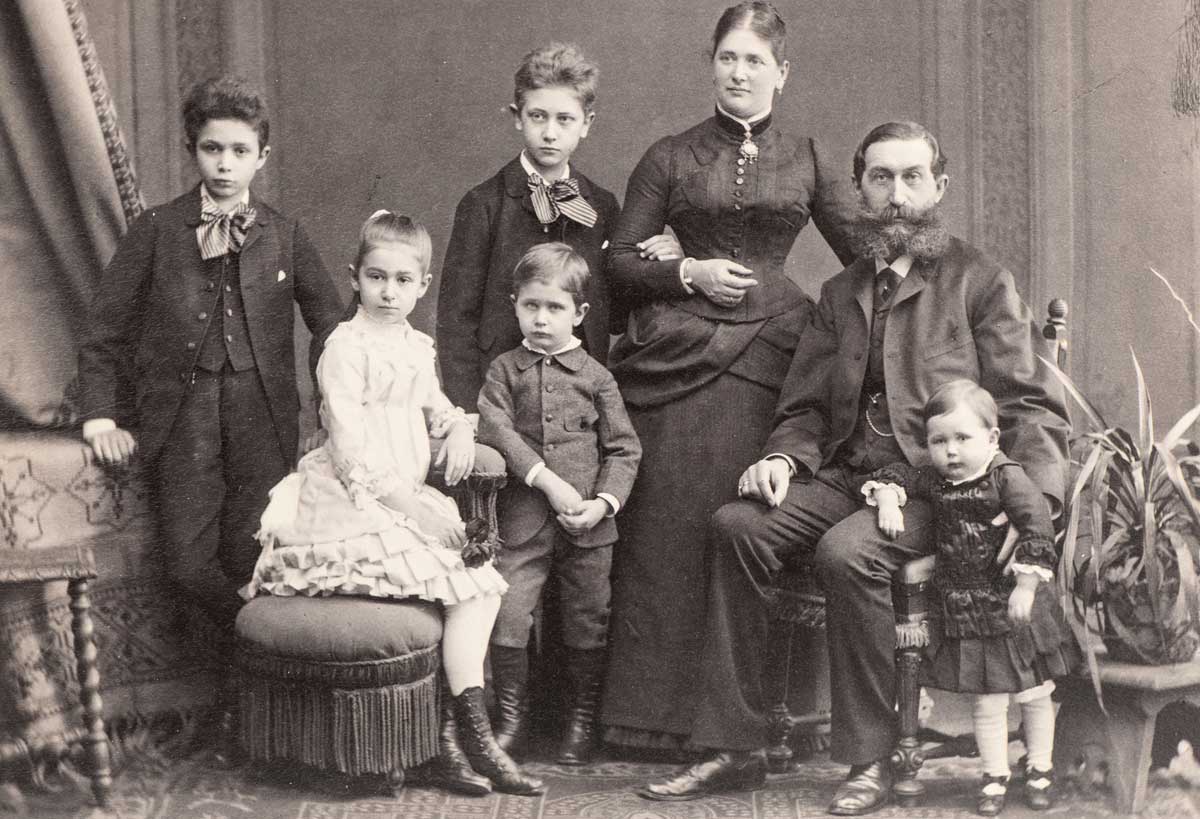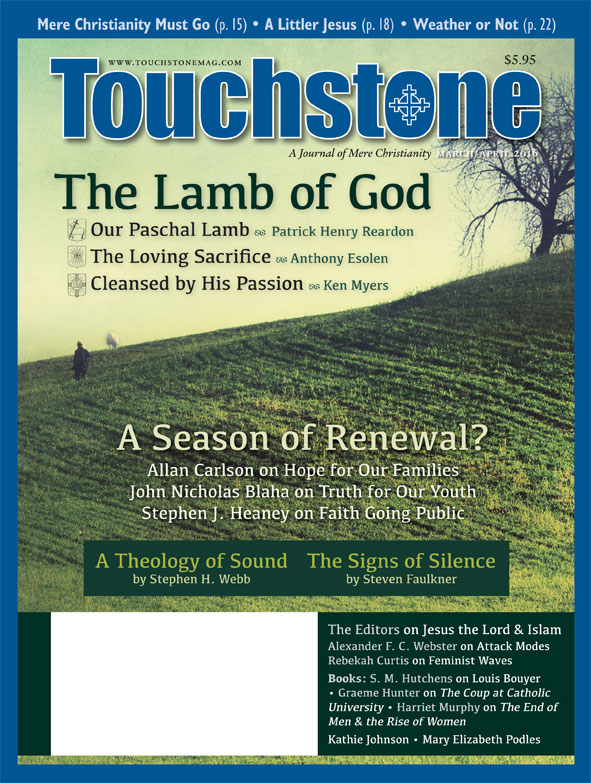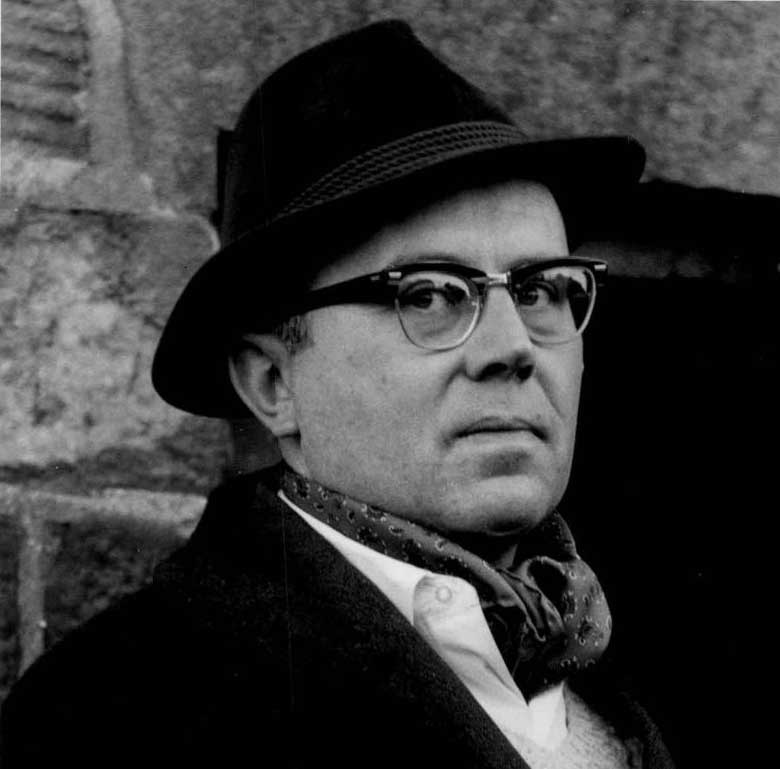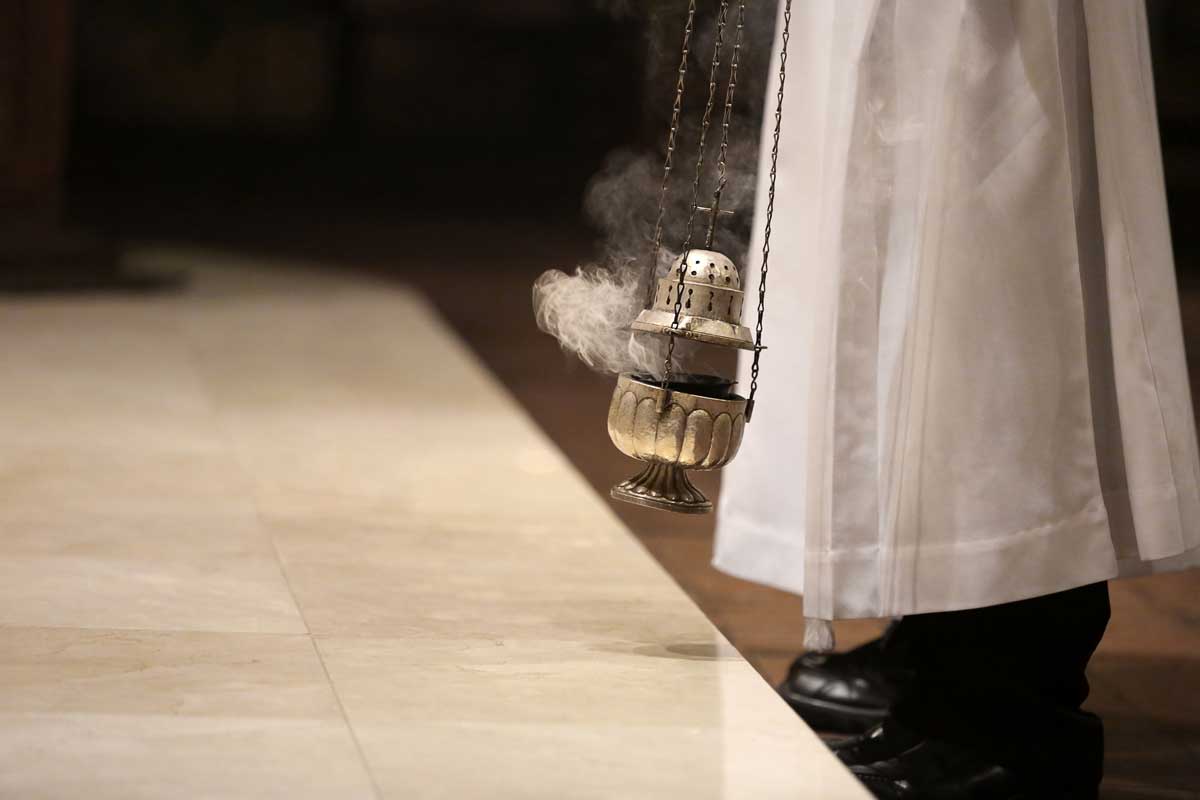Feature
Family Phases
The History of Family Strength in America May Reveal Good News
There are three ways in which historians have tried to make sense out of the history of the family in America. The oldest of these is the liberal interpretation. First offered in Henry Sumner Maine's mid-nineteenth-century book, Ancient Law, this thesis holds that the change in all "progressive" societies—including the United States—is "from Status to Contract." In pre-modern societies, rulers or legislators only reached to the heads of families. These patriarchal males then governed the women, children, and servants within their domestic domain. The status of each person—male or female, parent or child, free or servant—was fixed by custom and law. Political entities were composed of patriarchal households, not of individuals.
However, Maine argues, the "sphere of civil law, small at first, tends steadily to enlarge itself." Along the way, ever more personal rights and ever greater amounts of property are removed from exclusive domestic control and brought to the attention of public tribunals. This movement features "the gradual dissolution of family dependency and the growth of individual obligation in its place. The individual is steadily substituted for the Family, as the unit of which civil laws take account." The family, as such, is left with ever diminished authority and ever fewer enforceable claims, and so keeps moving toward extinction.

The Marxist Interpretation
The second theory of historical interpretation is Marxist. Loosely inspired by the ideas of Karl Marx and Friedrich Engels (especially Engels's 1884 book, The Origin of the Family, Private Property and the State), Arthur W. Calhoun produced the first comprehensive history of the family in America in 1917. His three-volume work, A Social History of the American Family: From Colonial Times to the Present, emphasizes "the economic factor" pushing social change. Putting it another way, he says that the "form and texture" of family relations "depend primarily on the evolution of economic technique." As an example, Calhoun cites American family life in the early twentieth century, which he sees as being shaped by "the growth of the larger capitalism." The "real basis" of then-evident family woes, he argues, derives from "the pathology of capitalism."
Calhoun, like Maine, portrays the history of the family as moving, or "evolving," in a distinct direction. In Calhoun's interpretation, "society is working toward Socialism," which, he argues, would actually deliver "the regeneration of the family." However, the "meaning and spirit of Socialism" would require a radically new set of family values, including: "absolute sex equality"; the "scientific [teaching] of sex relations"; "a thoroughgoing eugenics enforced at the outset by legislation"; "limitation of the size of family"; and easy divorce when deemed best for all concerned.
Since technological innovation in the economy would never end, Calhoun emphasized that the evolution of the family would also never come to a rest. And since "in the light of social evolution, nothing is right or valuable in itself," he anticipated that "there will ultimately be as many types of sex commerce as there are of individual taste." Indeed, Calhoun predicted in 1919 the return of legal polygamy in his new family order; and, if he could have imagined it, so-called same-sex marriage would also surely have won his approval: it's all a matter of "taste."
A Third One-Directional View
A third school of historical interpretation has emerged in the early years of the twenty-first century. It draws on both liberal and Marxist themes while bringing in other philosophical strands: the emotionalism of Jean-Jacques Rousseau; the crafting of a personal moral code, as advanced by Friedrich Nietzsche; and the sexual enthusiasm of Havelock Ellis. Two of its representative authors, who focus on the "love revolution," are American historians Nancy Cott (Public Vows: A History of Marriage and the Nation, 2000) and Stephanie Coontz (Marriage, a History: From Obedience to Intimacy or How Love Conquered Marriage, 2005). Their view of historical evolution sees the family moving from an institution focused primarily on the procreation of children and the preservation of family property toward a flexible lifestyle choice involving no prescribed roles. Such choices turn marriage into "a personal and private relationship that should fulfill" each individual's "emotional and sexual desires."
This transition has meant the rejection of any particular marriage model, most certainly the Christian one. Similarly, it has rejected all appeals to "nature" or to a "natural" family order. Most tellingly, it has denied the procreation of children as a defining, or even important, feature of marriage.
More specifically, Cott argues that historical evolution is bringing new understandings to the categories of "husband" and "wife." Instead of being a rigid institution, marriage is being turned into the final destination of a love match. Freedom and private choices are enhancing, rather than damaging, marriage and family. This is why, she claims, the push for same-sex marriage has actually renewed the honor attached to conjugal bonds.
Allan C. Carlson is the author of numerous books, including Family Questions: Reflections on the American Social Crisis and The American Way: Family and Community in the Shaping of the American Identity. He attends St. Paul Lutheran Church in Rockford, Illinois. He is a senior editor of Touchstone.
subscription options
Order
Print/Online Subscription

Get six issues (one year) of Touchstone PLUS full online access including pdf downloads for only $39.95. That's only $3.34 per month!
Order
Online Only
Subscription

Get a one-year full-access subscription to the Touchstone online archives for only $19.95. That's only $1.66 per month!
bulk subscriptions
Order Touchstone subscriptions in bulk and save $10 per sub! Each subscription includes 6 issues of Touchstone plus full online access to touchstonemag.com—including archives, videos, and pdf downloads of recent issues for only $29.95 each! Great for churches or study groups.
Transactions will be processed on a secure server.
more on america from the online archives
more from the online archives
calling all readers
Please Donate
"There are magazines worth reading but few worth saving . . . Touchstone is just such a magazine."
—Alice von Hildebrand
"Here we do not concede one square millimeter of territory to falsehood, folly, contemporary sentimentality, or fashion. We speak the truth, and let God be our judge. . . . Touchstone is the one committedly Christian conservative journal."
—Anthony Esolen, Touchstone senior editor













